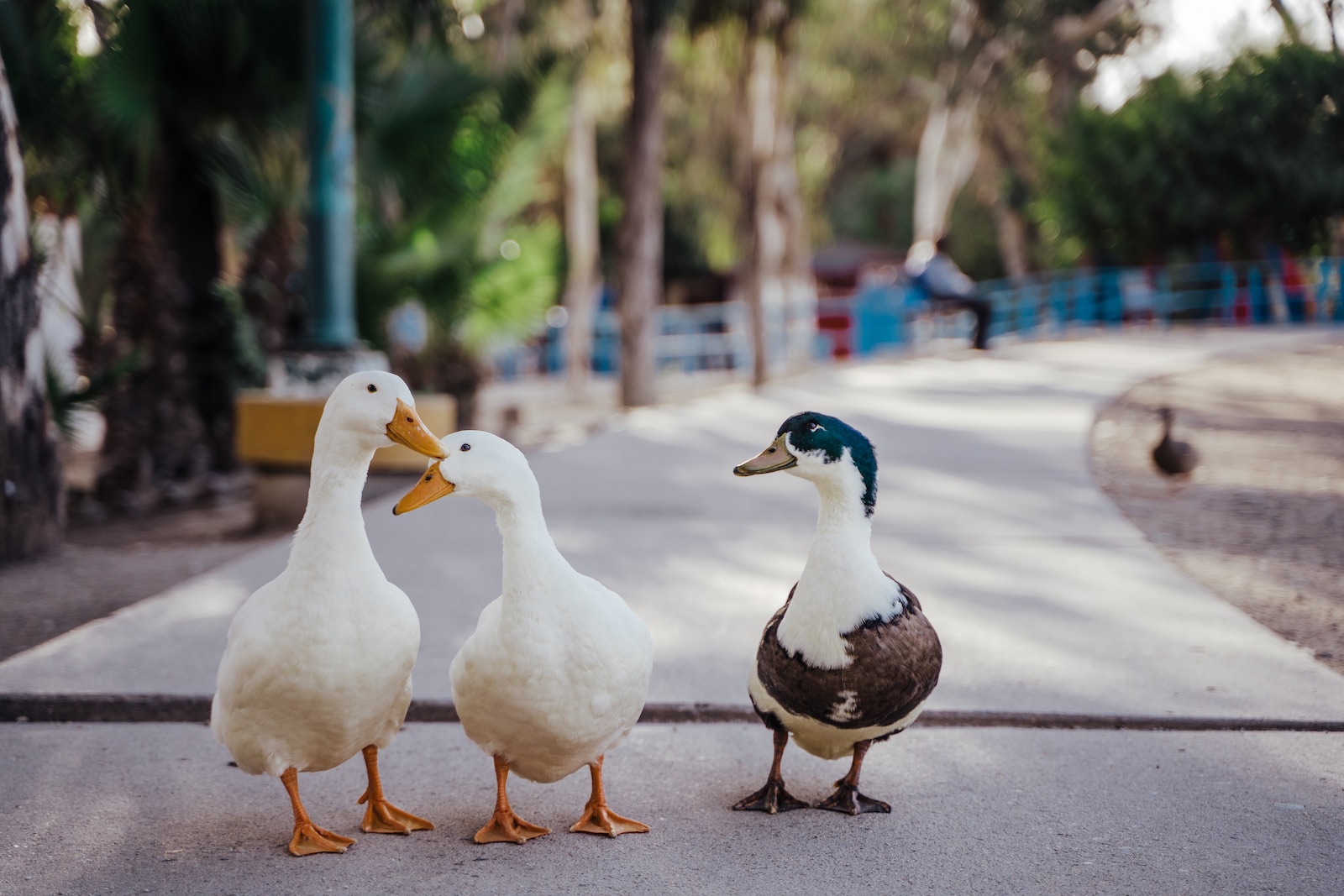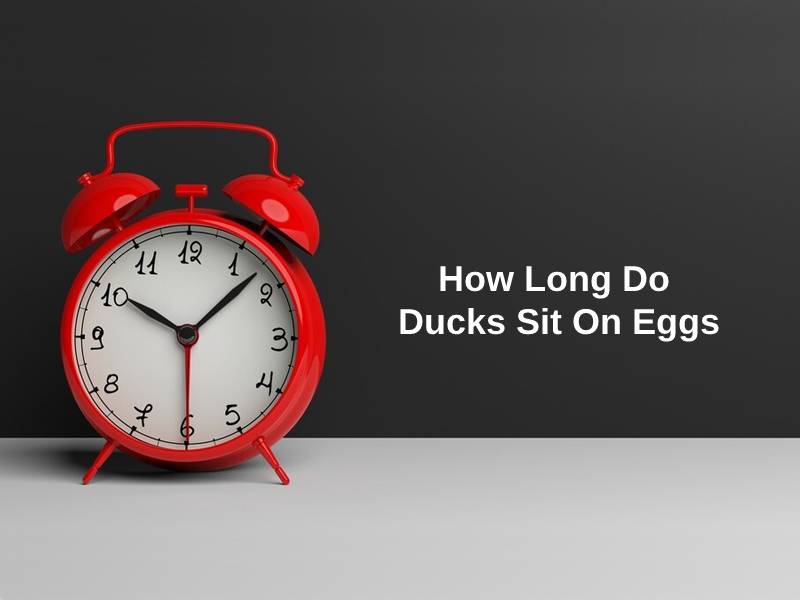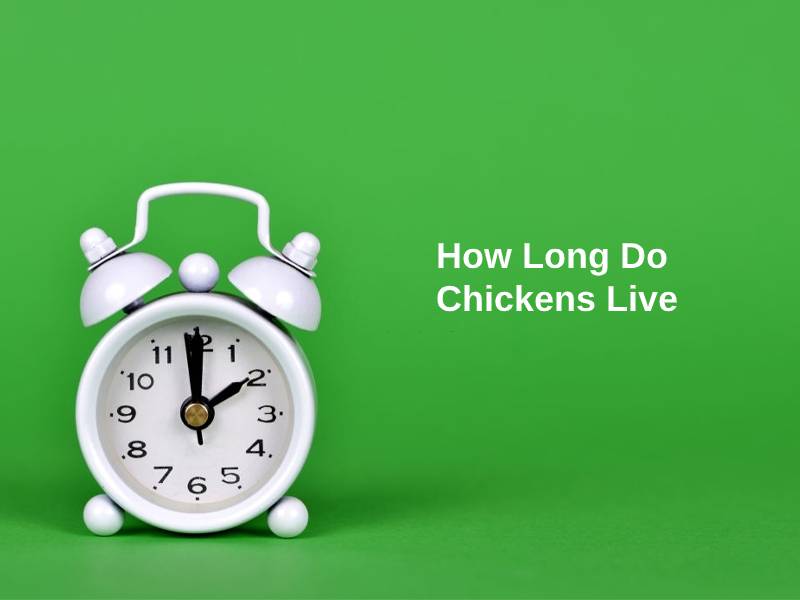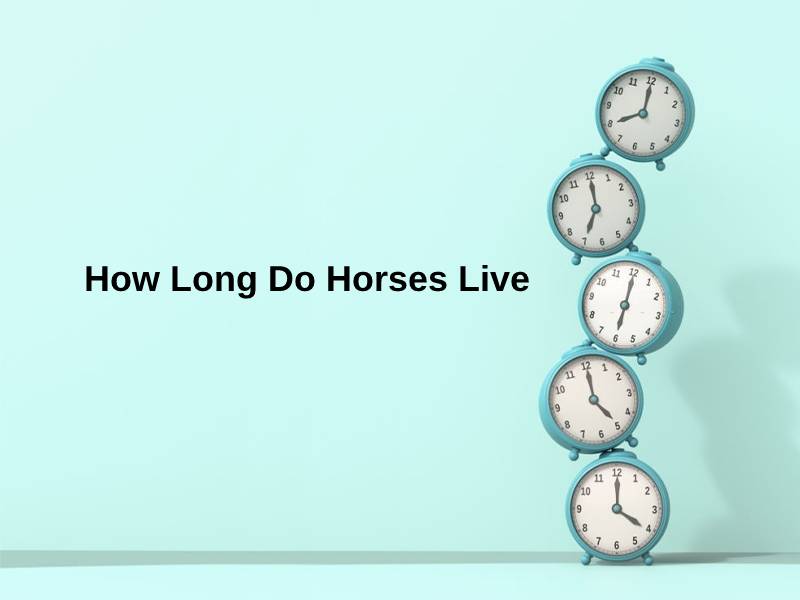Exact Answer: 5 – 10 Years
Ducks are aquatic birds that are smaller than swans and geese and may be found in both fresh water and seawater. They are found on every continent except for Antarctica.
Ducks are omnivorous, opportunistic eaters and they eat grass, aquatic plants, insects, seeds, fruit, fish, nuts, and other types of food.
Ducks are birds that are referred to as “waterfowl” because they are found near water bodies like rivers, streams, and lakes.

How Long Do Ducks Live?
Ducks don’t live as long as the other similar birds. The average lifespan of a domestic duck is about 10 years or less. As a general rule, the larger the breed of a duck is, the smaller is its lifespan, and vice-versa. Quite rarely the larger breeds of ducks live beyond 5 to 7 years of age. However, there are some exceptional breeds of ducks which when well taken care of can live beyond 10 years.
There are several stories about pet ducks reaching ages into their 20s. Thus, if they are well cared for, ducks can surpass the average lifespan of 5 – 10 years.
Ensuring that ducks have a safe shelter is as important as making sure that they have a sufficient supply of food to eat. Ducks are indeed low-maintenance birds, but if one is keeping them as pets, their necessities should be fulfilled so that they can live a long and fruitful life.
Mallard ducks, the most common and familiar duck on the planet live on average for approximately 10 years. Also, one mallard male duck holds the world record among the ducks for having lived for 26 years and 4 months. Thus, there are a lot of factors that can influence this bird’s lifespan.

| Breed | Average Lifespan |
| Pekin | 5 – 10 years |
| Call | 7 – 10 years |
| Indian Runner | 8 – 12 years |
| Khaki Campbell | 8 – 10 years |
| Mallard | 8 – 10 years |
Why Do Ducks Live This Long?
The lifespan of a domestic duck depends on several factors like housing, care, protection, diet, exposure to threats, veterinary care, etc. Duck care is inexpensive as they are extremely easy to handle.
As ducks require minimal shelter, they are affordable to maintain. Care must be taken to ensure that the opening of the shelter faces away from the prevailing winds. The duck’s house must always be bedded with clean straw or wood shavings. These birds also require a constant supply of fresh water, deep enough to allow them to submerge their head.
One can easily do their care however it must be kept in mind that ducks are not made for indoor lifestyle. Hence, they must be kept outside like in an open lawn or garden space for their well-being. Ducks don’t like to be alone and get sad and quiet when they are lonely. If possible, whenever buying a duck, buy them in a pair. In this way, the duck will have a companion and will be happy in its company.

The duck’s lifespan mainly depends on the quality of care one can provide. When along with proper care better facilities are provided, ducks can easily live longer than their average lifespan.
Ducks are highly intelligent and emotional creatures. They can understand commands and can even play with toys. If ducks are handled with care frequently and gently from an early age, they can become quite sociable with people.
Conclusion
Domestic ducks are mostly raised for eggs and meat. They are kept as pets too as they are easy to handle. Their average lifespan ranges from 5 to 10 years. However, they can live longer too depending on various other factors affecting their lifestyle.
One should not keep a duck as a pet at home or any other unusual animal for that matter, just to be different from others. One must think about the animal’s needs and wants, must assess whether or not he would be able to give the life the pet needs and deserves.
Ducks can live for a long time and deserve a happy, healthy home for the duration. As with all pets, when one is planning to keep a duck as his pet, remember to contact the veterinarian for any questions about their lifestyle and schedule checkups regularly to keep them healthy and happy.





















I’m fascinated by the fact that ducks can understand commands and play with toys. I was unaware of how emotional these creatures are
I also didn’t know that. It would be interesting to read more about how intelligent ducks are and what commands they can understand
I never thought I would consider having a duck as a pet, but it’s been an insightful read. I’m considering it now
I know what you mean, I’ve been thinking about it myself
It’s a fun idea, I’m considering it myself now
It’s interesting to learn that ducks can be quite social and emotional. I had no idea they were so easy to raise
Completely agree. I am thinking about getting a duck as a pet myself now, they sound like lovely animals to keep at home
Duck care is indeed inexpensive and easy, I’m considering getting one myself #DuckLife
I was unaware that ducks can understand commands and are sociable with people. It’s very interesting to learn that
It is a fascinating discovery. It’s so interesting to learn more about the behavior of ducks
Ducks have some surprising qualities. It’s always interesting to learn more about animals we don’t usually know much about
This article made me realize that owning a duck would be a lot of fun! I’m unaware of how intelligent and emotional ducks are, it’s fascinating
Yes, I agree. Ducks can be interesting pets and quite entertaining
Feeding ducks is like taking care of any other pet, I am happy to have learned even more about them
It is quite interesting to know about all the factors that can influence a duck’s lifespan. I had no idea how easy it could be to take care of a duck
Absolutely. Quick question, though, why do ducks only live up to 10 years?
Domestic ducks certainly need proper conditions to live long and happy lives. People need to be informed about this and I’m glad I’ve learned this information
Ducks have always seemed like interesting pets to have. Their long lifespan depends on the care they receive, I think it’s important to take care of them properly
It really depends on the quality of care you can provide. This article raises awareness of the needs of these animals
It’s great to know that ducks do not require too much care. Having a pet duck sounds easier than I thought
Yes, it’s very informative and encouraging to know that. I have always wanted to have a pet duck, now that I know it’s not as hard as I thought, I am definitely considering getting one.
This article has made me realize that ducks can be quite easy to take care of if you provide them the right environment.
I agree, they can be great pets if properly taken care of
I always thought that ducks were problematic to take care of. It’s a relief to find out it’s not that complicated
I’ve always wanted to have a duck, now I’m considering it even more after reading this article
I’m glad to have learned how easy it can be to raise ducks